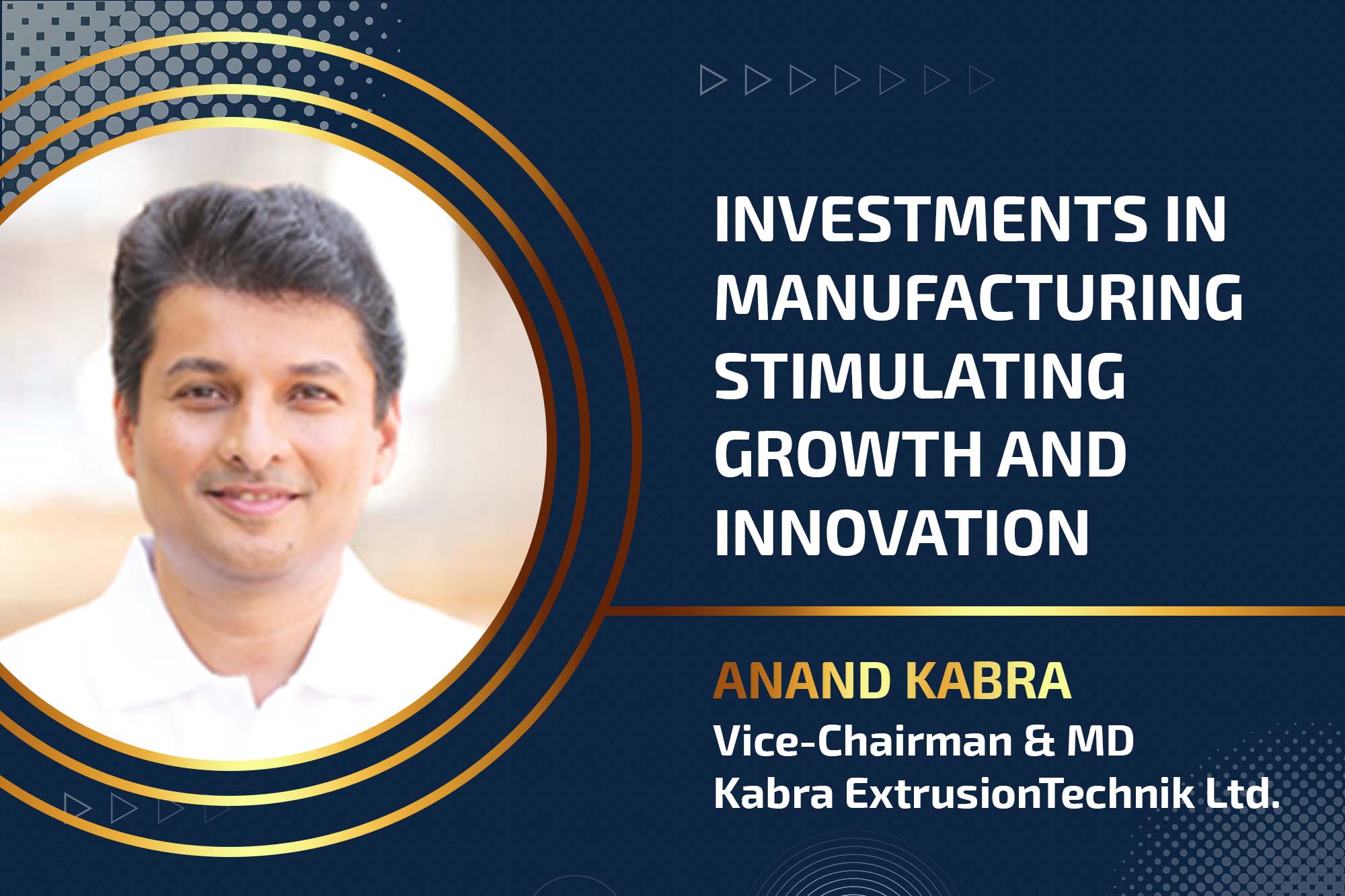Investments in the manufacturing stimulating growth and innovation
15-Jun-2024 3:31 pm
15-Jun-2024 3:31 pm

A comprehensive and strategic approach is required for scaling up manufacturing. Anand Kabra, Vice-Chairman & MD of Kabra ExtrusionTechnik Ltd shares strategies for scaling up manufacturing through advanced technologies, supply chain management, and the Make in India initiative.
Securing efficient and productive manufacturing that is scalable requires a multimodal strategy that incorporates technologies. Industry 4.0, which includes advanced robotics, machine learning, artificial intelligence, and the Internet of Things (IoT), is at the forefront. When these technologies are cleverly combined, they transform conventional manufacturing methods. For instance, massive manufacturing data is analysed by AI and ML algorithms to find trends and improve operations instantly. Automating repetitive operations increases throughput and decreases error rates thanks to advanced robotics. IoT devices reduce downtime by offering insights into machinery performance for predictive maintenance. Reducing material waste, enabling quick prototyping, and supporting on-demand production are all made possible by additive manufacturing, especially 3D printing, improving flexibility and cost-effectiveness.
Advanced robotics offers precise assembly and heightened productivity when involved in manufacturing processes. Collaborative robotics, or cobots, work alongside human operators to excel in precision tasks and automate repetitive processes while ensuring safety. Automated Guided Vehicles (AGVs) are used in material handling and logistics to promote workflow efficiency. Vision-guided robotics use cameras and image processing to detect and align components accurately. This enhances product quality. Continuous training and maintenance programs empower employees to operate and maintain robotic systems effectively.
Supply chain management provides seamless material flow and mitigates bottlenecks by streamlining processes and enhancing supplier collaboration. Investing in technology and innovation drives process improvements and product quality, fostering a culture of innovation and allocating resources to R&D initiatives. Workforce development equips employees with skills to handle advanced technologies effectively through training and upskilling. Adopting sustainability practices reduces environmental impact, enhances brand reputation, and resonates with environmentally conscious consumers to develop long-term sustainability and competitiveness.
Scaling up manufacturing assists in maintaining the status quo while making the company utilise the resources properly. Scaling up looks far-fetched without embracing innovative technologies and lean practices. The scope of scalability becomes limited and hinders the ability to meet market demands and achieve cost competitiveness. A rigid operational approach lacks adaptability, making responding to dynamic market conditions and technological advancements challenging. Flexibility, agility, and continuous improvement are the tools for sustaining growth and remaining competitive. As a business, we have to consider the needs of stakeholders to maintain our reputation and market share. Manufacturers embracing innovation, adaptability, and responsible practices align with economic, environmental, and social objectives, ensuring long-term sustainability and success.
The Make in India initiative contributes to economic growth, job creation, and global competitiveness. It focuses on skill development and enhancing the capabilities of workers in handling advanced technologies. India has a cost advantage in terms of lower labour costs, attracting manufacturers to cut their production costs.
India has witnessed investments in the manufacturing sector stimulating growth and innovation. Promoting domestic manufacturing reduces dependence on imports and gives any country a stage for global competitiveness. Job creation helps with socio-economic development and contributes to poverty alleviation, inclusive growth and development objectives. The Make in India initiative is essential for growth by improving productivity and contributing significantly to economic development.
We use cookies to personalize your experience. By continuing to visit this website you agree to our Terms & Conditions, Privacy Policy and Cookie Policy.
A PROMONIQUE RESEARCH INDIA INITIATIVE